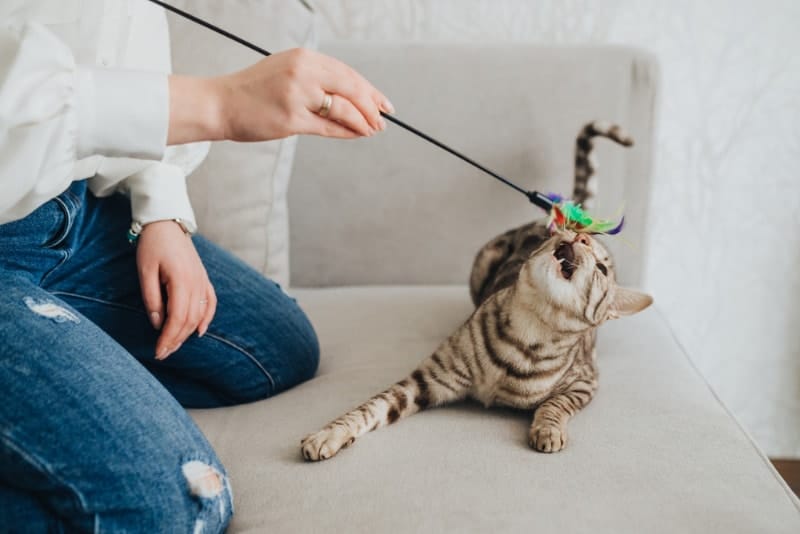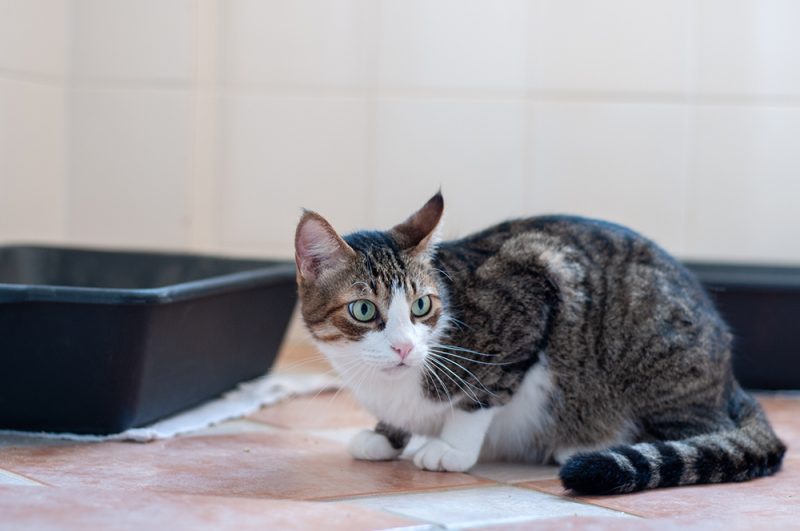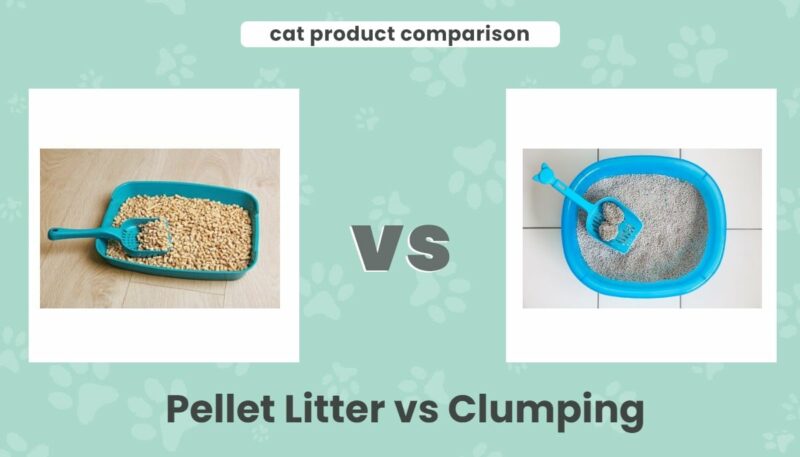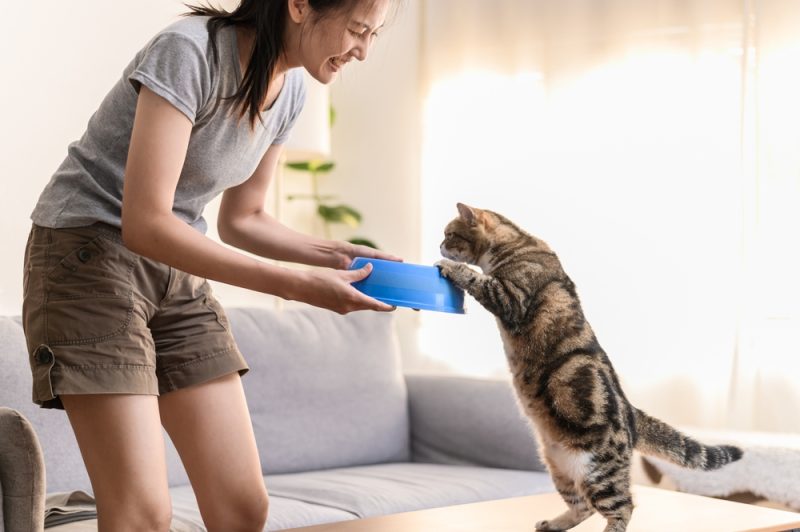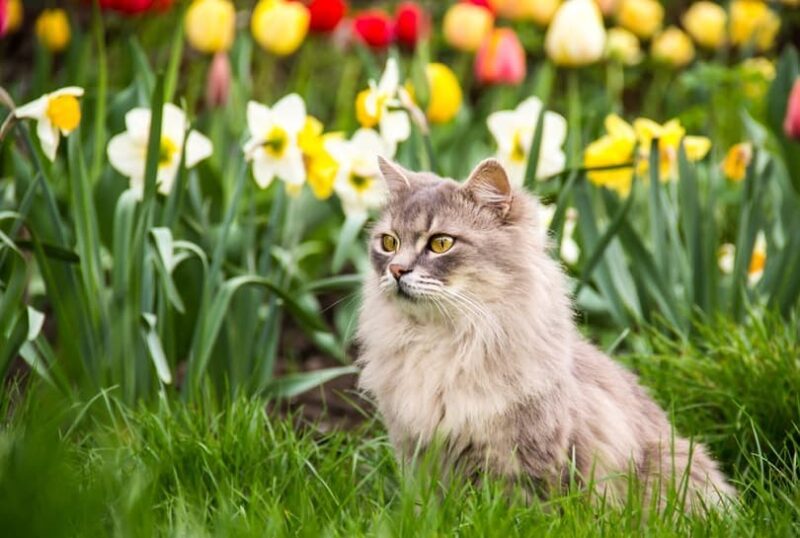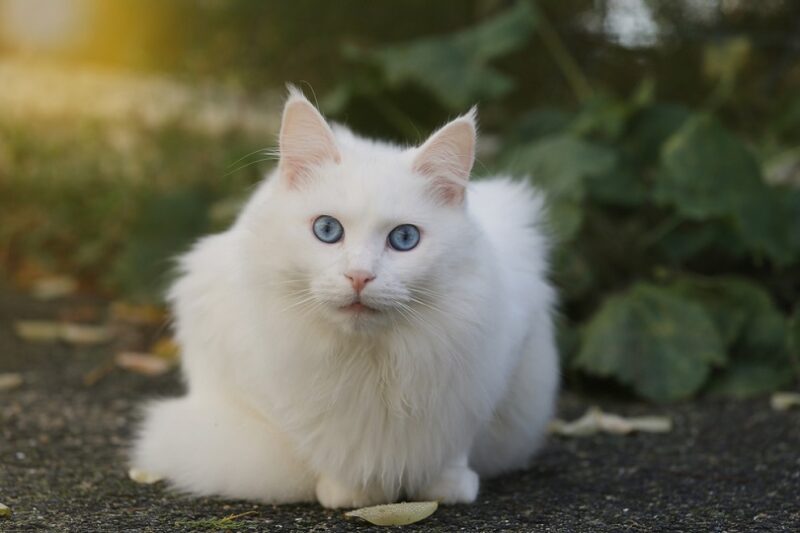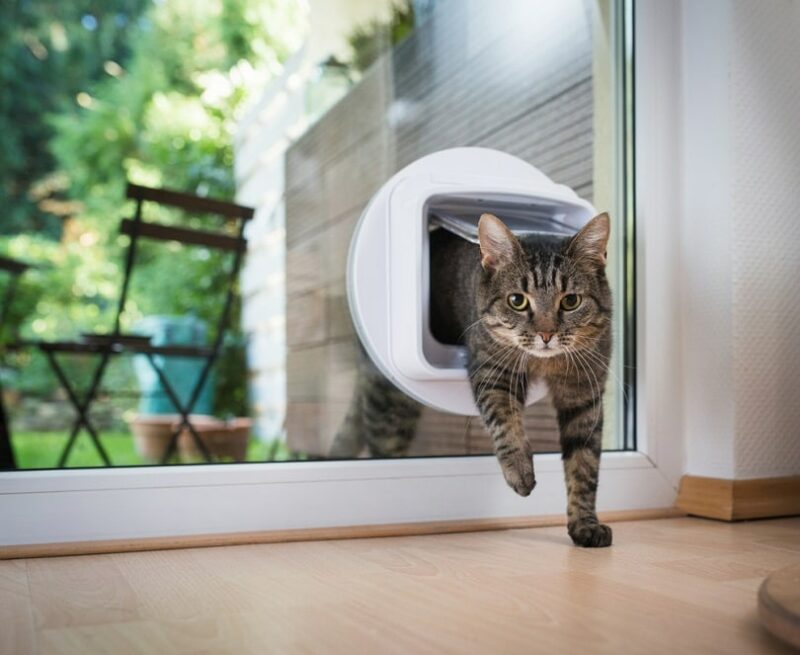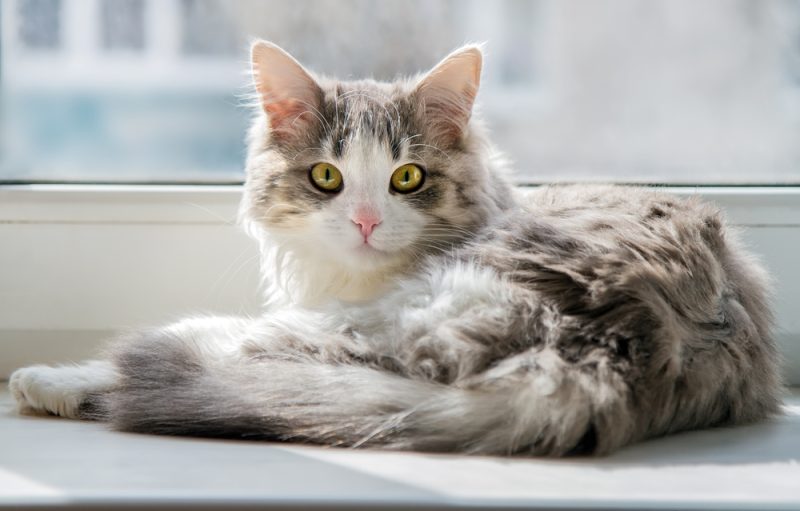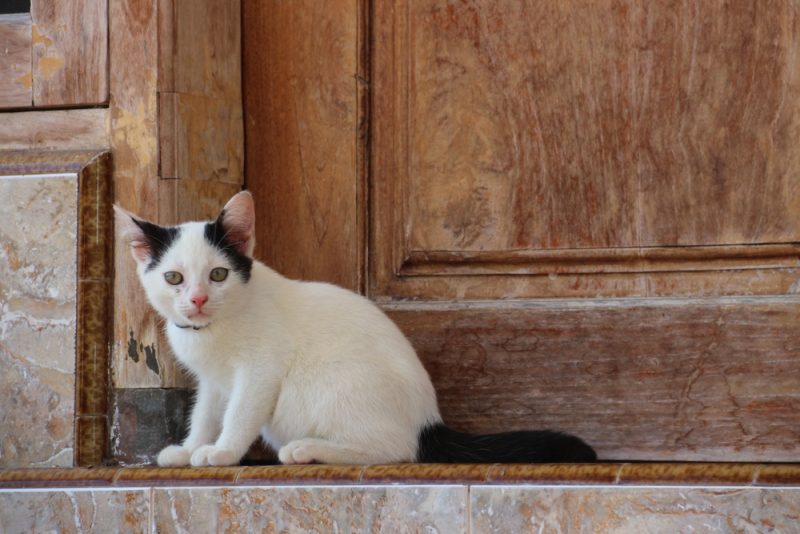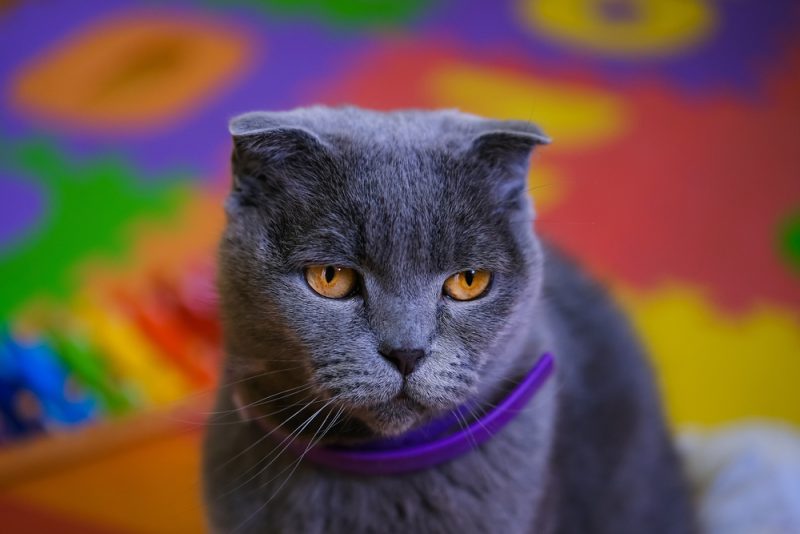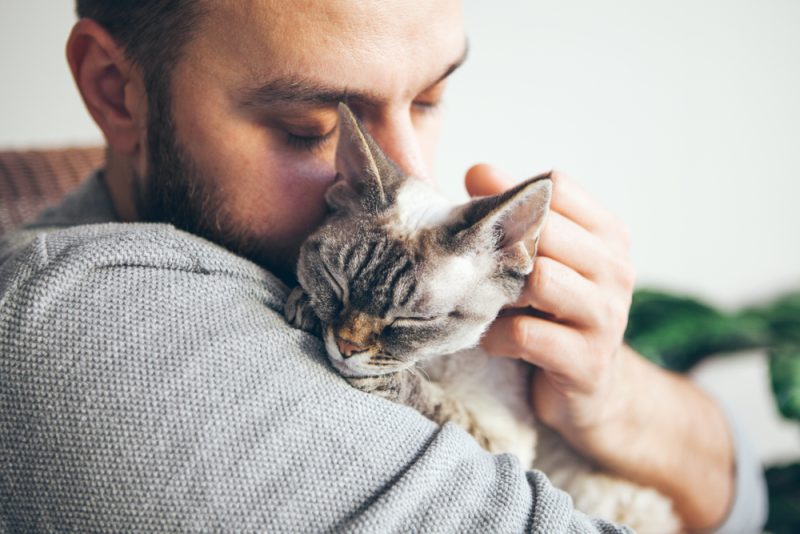In this article
Cats are naturally playful creatures, and they don’t have a problem turning basic things like cardboard boxes, paper, and even plastic bottle tops into their own personal toys. So, it makes sense that the simple act of playing with your cat offers an awesome opportunity to bond and strengthen your overall relationship with them. Playing also provides much-needed exercise for indoor kitties to help keep them fit and healthy. Luckily, there is no better way to bond with your cat than playing games and interacting with them.

How to Bond With Your Cat Through Playtime
1. Utilize Interactive Toys
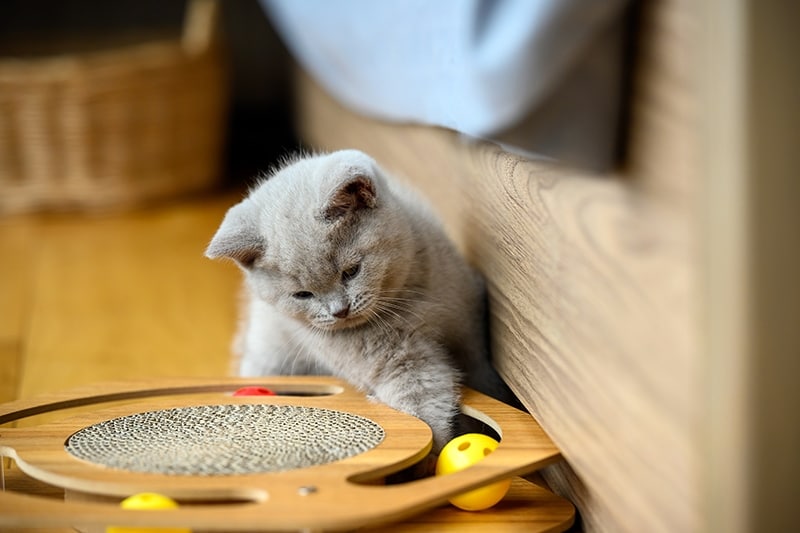
Set out a puzzle toy, and take turns with them trying to figure out the puzzle. Create a peek-a-boo game using a cardboard box, or chase an electronic mouse around the house together. Rotate the types of interactive toys that you utilize throughout the week so playtime doesn’t get too boring or lackluster for either of you.
2. Train Them
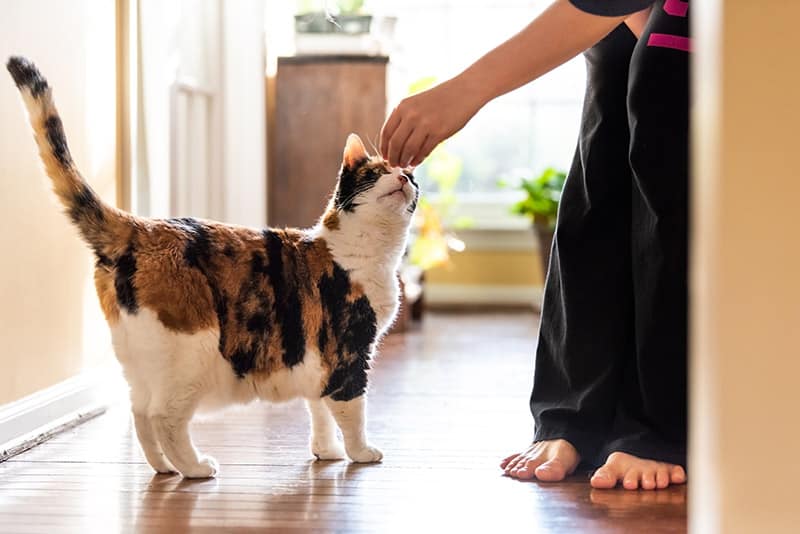
Believe it or not, cats can learn various tricks and tasks, just like dogs can. Spending time working on training with your kitty is a fun and productive way to bond with one another. As long as you plan it carefully and celebrate each small success, training is a fun activity that should feel more like participating in a game for a much-desired price rather than as a boring and difficult lesson. You can teach your cat how to come when called, sit, stay, and even go to a bed when directed to. Training sessions give you an opportunity to provide your feline family members with positive reinforcement and enhance the trust that they have in you.
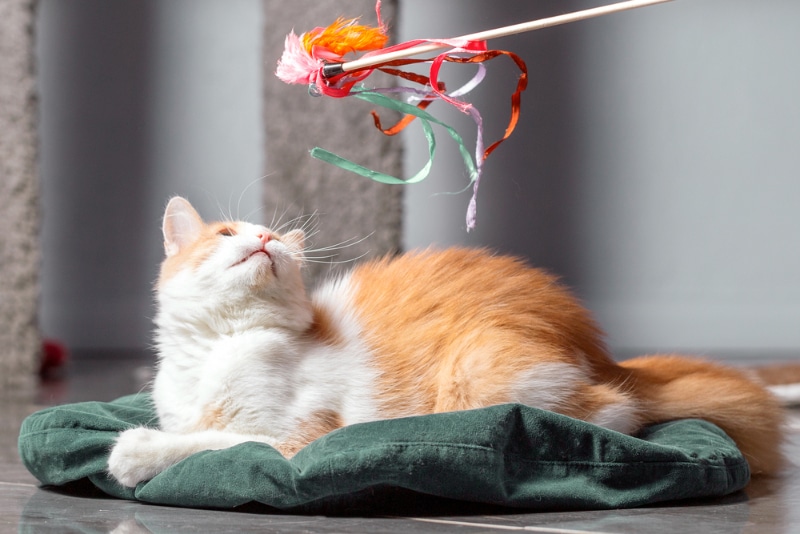
Teaser toys are essentially sticks with long strings hanging from them and feathers or stuffed toys attached to the ends of the strings. If your cat is like most, they love getting their paws on these types of toys when a companion is controlling the stick. Many times, all it takes is to swing around a teaser toy to get a cat’s full attention. Spending a few minutes with your cat and a teaser toy each day can go a long way toward deepening your bond.
4. Try a Game of Fetch
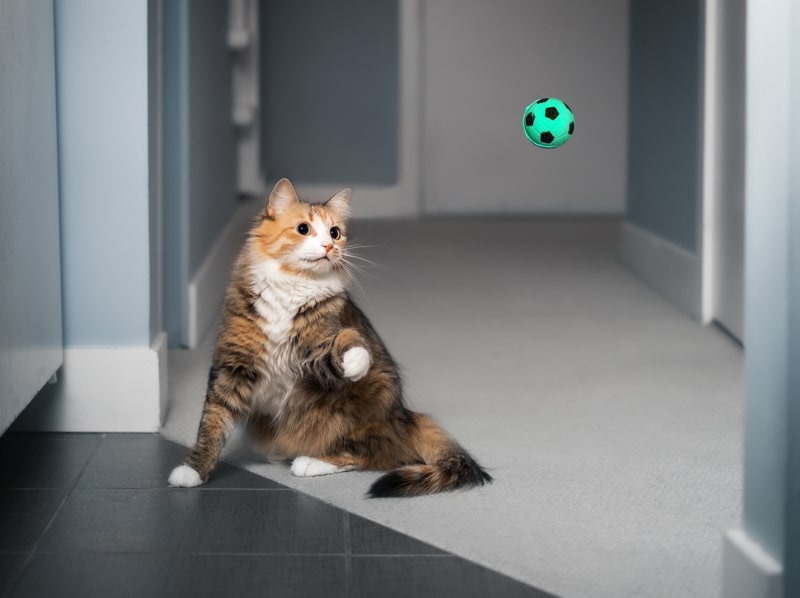
Another fun way to bond with your cat through playtime is to practice fetch. While you shouldn’t expect your kitty to bring a toy back to you like a dog would (though some cats will do so!), there is no doubt that they’ll chase after a toy that you throw if it means they’ll have a chance to “attack” the perceived prey. You can throw anything from a basic toy to a crumpled piece of paper or even an old sock to get a game of fetch going.

Tips for Making Playtime Fun and Safe for Everyone
Playing with your cat should always be a fun and exciting experience for everyone involved. Therefore, don’t push for playtime if your furry friend is not interested. Any sign of disinterest, irritation, or aggression should put a stop to any gameplay that you’re trying to get your cat interested in.
- Take Things Slow — If you are dealing with a kitten or older cat, it’s a good idea to take things slow when it comes to playtime. Spend only 2 or 5 minutes at a time playing so things don’t get out of hand, your cat doesn’t become overstimulated or disinterested and overexertion doesn’t become a concern.
- Don’t Allow Painful Play — It is never a good idea to allow your kitty to play in a way that creates pain for you. Scratching or biting your hands should not be acceptable at any time. Redirect your cat’s attention to more gentle play as necessary until painful play is no longer an issue.
- Make Playtime Physical — To make sure your cat gets the exercise that they need and will sleep well throughout the night while you’re snoozing, include lots of physical activity during your playtime. Get your cat moving, whether that means running, batting at toys, or jumping up and down on a piece of furniture.

A Quick Recap
Playtime offers the perfect opportunity to bond with your kitty as time goes on. It doesn’t matter what kind of play you engage in when it comes down to it. Whatever you and your cat like to do together should provide you with the results that you’re looking for overall. Having fun together is the best way to strengthen your relationship.
Featured Image Credit: Dora Zett, Shutterstock
